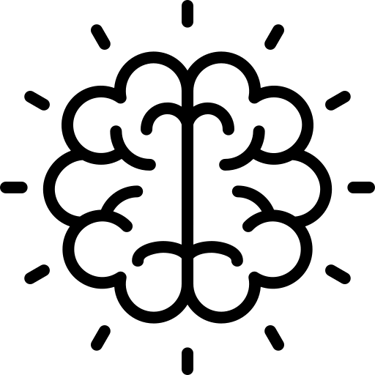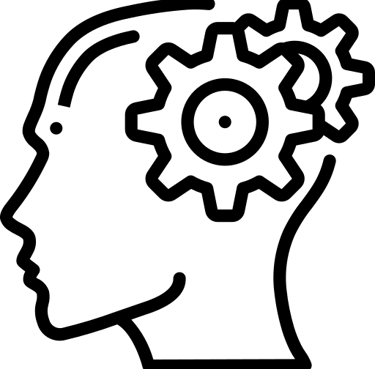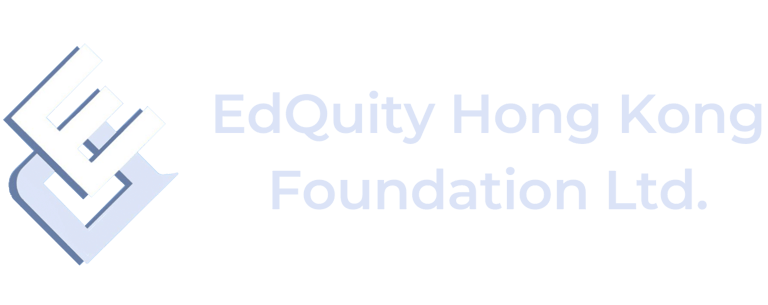ThinkTank Program
Purpose
Why Discussion-based Learning?
Inspired by the Harkness method (adapted by Phillips Exeter Academy as a mode of learning), these discussion-based learning sessions are not guided toward a set of model answers; instead, they provide participants with opportunities to develop and voice their unique views freely on issues related to the education system in Hong Kong.
We recognize the importance of diverse forms of knowledge acquisition in fostering a well-rounded education, including solitary study, real-life experiences, and collaborative discussions with peers, family, and professionals. Unfortunately, the existing education system often lacks emphasis on the latter two. The spontaneous and impromptu nature of discussions serves as a catalyst for articulation and critical thinking. By integrating discussion-based learning with other educational techniques, we actively encourage the exploration of open-ended issues and critical concepts. Our goal is to empower students to go beyond mere recitation of knowledge by building upon others' ideas, developing their own thoughts, and expressing themselves effectively. Through this approach, we aim to create an educational environment that values and nurtures holistic learning.
By incorporating these discussion-based learning sessions as the Empathy stage of the Design Thinking process, we empower participants to progress through the subsequent stages of Ideation and Prototype. Our aim is to inspire them to leverage their experiences and talents to address the issue of educational inequity in Hong Kong, and ultimately make a positive impact in the lives of those affected.
Our ThinkTank program combines discussion-based learning with the principles of design thinking to create a transformative educational experience to empower actions to improve education equity in Hong Kong.
Why Design Thinking?
Discussion-based Learning & Design Thinking
How will participants benefit?
Experience the joy of learning as participants engage in meaningful discussions that go beyond regular academic studies, fostering a genuine passion for knowledge.










Cultivate the thirst for knowledge through joyous learning
Enhance awareness of societal issues
Gain a broader understanding of the challenges society faces today, including those within the education system, by actively participating in discussions on relevant topics.
Develop confidence in expressing views on controversial issues
Foster the ability to confidently express personal opinions on contentious topics through respectful dialogue and constructive debates.
Embrace
collaborative learning
Explore the power of collaboration and collective knowledge by actively engaging in group discussions, enhancing critical thinking and interpersonal skills.
Enhance analytical and critical thinking skills
Learn to analyze information critically and question assumptions by actively engaging in discussions that require considering diverse viewpoints, evaluating evidence, and examining complex issues from multiple angles.
Our program offers students a unique opportunity to reflect on education itself, providing dedicated time to contemplate its purpose, challenges, and potential improvements. By engaging in these discussions and designing solutions for existing educational inequities, participants develop a deeper appreciation for the value of education and contribute to meaningful conversations about educational practices and reforms.


Foster empathy
Through respectful and open-minded discussions, participants develop empathy and gain a deeper understanding of diverse perspectives, promoting tolerance and empathy towards others.


Boost self-awareness and personal growth
Reflect on personal beliefs, values, and biases, fostering self-awareness and promoting personal growth.


Develop effective communication skills
Develop the confidence and proficiency to express viewpoints, support arguments with evidence, and engage in meaningful dialogue.


Gain exposure to diverse perspectives
Interact with participants from different backgrounds, cultures, and experiences, broadening horizons and encouraging a global mindset.
Discussion Topics
If we were to envision an ideal mode of education, what characteristics or components would it include?
What are some educational inequities or disparities that exist in Hong Kong?
This prompt encourages participants to think beyond existing educational systems and envision an ideal mode of education. Discussions will revolve around learner-centered approaches, personalized learning, inclusive practices, technological integration, holistic development, and the role of educators and the community.
Participants will explore the fundamental objectives and purposes of education, reflecting on broader goals such as personal development, acquiring knowledge and skills, fostering critical thinking, promoting social cohesion, and preparing individuals for future opportunities.
This logical progression of topics allows for a deeper understanding of the complexities surrounding education and encourages participants to think critically, propose innovative solutions, and contribute to creating a more equitable and impactful educational landscape.
What are the goals of education?
Participants will identify and discuss various forms of educational inequities or disparities within the Hong Kong education system. This exploration will highlight disparities in access to quality education, socio-economic gaps, language barriers, inadequate support for marginalized groups, unequal resource allocation, and disparities in educational outcomes.
1
2
3
Stages of Design Thinking
Ideation
Prototyping
In the ideation stage, a diverse range of ideas and potential solutions is generated for the identified problem or challenge. Participants engage in brainstorming sessions and creative exercises to encourage free thinking, collaboration, and exploration of various possibilities. The focus is on generating a high quantity and diversity of ideas rather than evaluating or refining them at this stage.
The empathy stage involves gaining a deep understanding of the needs, perspectives, and experiences of the service targets. This is accomplished through research, interviews, observations, and other methods to develop empathy and insight into the target audience. The goal is to understand the service targets' needs, motivations, and challenges on a profound level.
Design Thinking is a problem-solving approach that places a strong emphasis on user-centered design. It consists of three main stages.
Empathy
The prototyping stage involves transforming selected ideas from the ideation stage into tangible prototypes or representations. These prototypes can take the form of physical models, sketches, storyboards, or digital mockups, depending on the context. Prototypes are then tested and evaluated with service targets or stakeholders to gather feedback and insights. The iterative process of testing and refining the prototypes helps validate ideas, identify potential issues, and improve the design solutions based on feedback.
1
2
3
What to Expect?
Independent Research
Participants will be provided with a list of subtopics related to the theme of the day's discussion. They will be given time to prepare for the upcoming discussion by following these steps, which will help them deepen their understanding and actively contribute to the session: 1) Define the focus of research, 2) Gather Resources, 3) Synthesize and Organize Information, 4) Formulate Points and Questions for Discussion, 5) Prepare to Share and Reflect.
In this multi-day program designed for secondary 4, 5, 6, and university students, participants are grouped into diverse groups of 8-12 individuals. Each day consists of independent research, attending seminars by knowledgeable experts, and engaging in two-hour discussions with their groups. The program culminates in a guided Design Thinking Process, where participants design innovative solutions to improve educational equity in Hong Kong.
Seminars
The two-hour discussion-based learning sessions are designed to create an inclusive and collaborative environment where participants can freely share their viewpoints, engage in meaningful conversations, and explore diverse perspectives. Each participant is encouraged to express their viewpoints while actively listening to one another, fostering a respectful environment. A staff member will be present within each group to ensure that the discussions remain focused and productive. By actively participating, respecting others' viewpoints, and embracing diverse perspectives, participants will contribute to a rich and insightful learning experience, engaging in meaningful dialogue, exchanging ideas, and collectively deepening their understanding of the existing educational inequity in Hong Kong.
Discussions






Design Thinking Workshops


The seminars, independent research, and discussions serve as activities for the empathy stage, fostering empathy and a deep understanding of the needs of those affected by the issue. Subsequently, participants, organized in their discussion groups, are guided through the ideation and prototype stages of Design Thinking by a trained facilitator. These collaborative sessions involve hands-on activities and problem-solving exercises adopted from The Field Guide to Human-Centered Design by IDEO.org. The purpose is to stimulate creativity and enable participants to design a solution for one of the challenges related to educational inequity.
The seminars conducted prior to the discussions serve as a foundational component of the Empathy stage of the Design Thinking Process. These seminars are designed to deepen participants' understanding of the theme and subtopics. The seminars aim to foster a shared knowledge base and create a common ground for meaningful and insightful discussions.
Our Past ThinkTank Programs










"Iron sharpens iron, and one man sharpens another."
Proverbs 27:17
info@hkedquity.org
+852 9829 7377
EdQuity Hong Kong Foundation Limited © 2025
Registered Charity IR File No. 91/19551
www.hkedquity.org is owned by
